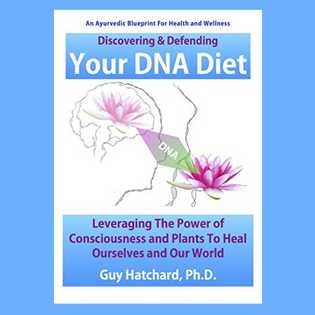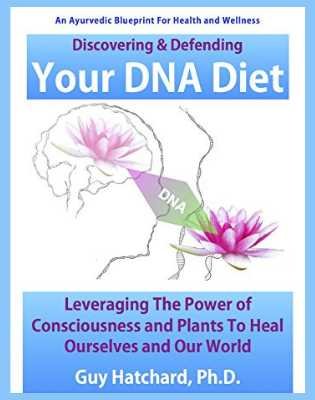An Open message to Parliament.
Why are they regulating natural health products?
How will the therapeutic products Bill affect us?
What does the public want?
The public are aware that research findings on diet, nutrition, and lifestyle indicate that there are proven health benefits.
Over 50% of the public use natural health products and alternative approaches to health care.
The public realise there are many traditional sources of information about what products can be used safely.
If an individual suffers from a chronic or serious illness, or simply wants to maintain health, they need to retain their options to research and choose the most effective treatment for them.
The new bill will regulate all natural health products that claim to benefit health.
This is an enabling bill. As a result, the government will appoint a regulator who will then decide for you what products can be sold and what health claims can be made.
Well, what will the regulator decide?
In 2016, the Ministry of Health published a draft list of 5500 approved and all restricted ingredients. Most likely, the decisions of the new regulator, when appointed, will be based on this list.
Let’s answer the public’s first question.
Are all these ingredients safe?
The 2016 Ministry of Health permitted list included 3000 synthetic and chemical additives.
A closer look shows that the permitted list includes many additives which are suspected of causing illness and cancer. Including:
- FD&C red No. 2
- Amaranth, No. 3
- Erythrosine No. 4
- Ponceau
All are banned in the USA by the FDA.
A 2007 study in the UK found a possible link between six food dyes, a preservative and hyperactivity in children. All these compounds are likely to be permitted by the bill.
Thousands of artificial fragrances and flavours have been approved, even though they have not been tested properly.
Here’s an example of a pre-approved synthetic product. This cheap popular drink is available in New Zealand supermarkets. All of its ingredients have already been approved by the Ministry of Health.
These include:
- Sugar: which predisposes to obesity and aggravates diabetes
- E330 Synthetic citric acid
- Synthetic raspberry flavour, effects unknown.
- E211 sodium benzoate: implicated as a possible cause of hyperactivity when used with E122
- Colour E122 Carmoisine: banned in the United States, Sweden, Norway and Austria
- Artificial sweetener E961 Neotame: similar to aspartame and banned in organic products. US FDA application noted adverse reactions. Dr. Mercola recommends this be avoided at all costs.
This bill will allow this synthetic product to be marketed as a natural health product.
We’re talking about serious health issues here. During the last 20 to 30 years, there’s been a huge expansion in chronic diseases, including cancers, diabetes, heart disease, anxiety, depression, and other mental and physical illnesses.
No one knows the exact causes but poor nutrition food, food additives and environmental pollution are all suspected.
Over 2000 new chemicals are registered each year. There’s been a rapid expansion in the use of chemicals in food and synthetic chemicals. Many of these have been approved without sufficient scrutiny.
Using discredited principles such as substantial equivalence additives that are similar to but slightly different from natural compounds have been approved in though is well known that very small differences in chemical structure can cause serious side effects.
The bill requires the regulation of entirely natural ingredients already known to be safe, in other words, foods.
Under the bill, all ingredients have to be pre-approved. We estimate a supplier will pay $200 annually for each ingredient.
The probable minimal cost of making a health claim on the label will be $5,000 to the regulator for each application. And for each mild condition, your product claims to benefit.
But you will not be allowed to claim that a natural health product can benefit a serious health condition.
If it is considered that your product has therapeutic value, you will pay around $100,000 to register it as a medicine. And only a medical doctor will be allowed to prescribe it.
An EU report found that natural health products are 45,000 times safer than pharmaceutical drugs; Despite this, suppliers will have to comply with pharmaceutical style regulations and undertake frequent costly testing of ingredients and products.
Say you’re selling 300 product products to the public, and each one benefits two mild conditions; the application fees alone will be $3 million before you’ve even begun to prepare your evidence.
The experience in Australia has been that the preparation of a single application can cost in excess of $100,000.
These restrictions are so costly that most suppliers will simply refrain from making health claims, so you’ll have less information. Many will go out of business.
The net effect of these regulations will be that consumers will have less information than they did before.
Restrictions on scientific information regarding serious illness
Did you know that the simple kitchen spice turmeric is effective in preventing bowel cancer?
There are a lot of studies.
New Zealand has one of the highest death rates from bowel cancer in the developed world.
Studies show that garlic, ginger, turmeric, thyme, rosemary, sage, spearmint, and peppermint all inhibit the growth of colon cancer cells.
A study found that 1/3 of patients with end stage bowel cancer for whom no other treatment options existed, improved after treatment with turmeric extract.
If the bill is passed, I would not be allowed to tell you this and could be liable for a substantial fine.
So there are restrictions on free speech
It has been proven for years that garlic benefits healthy heart conditions. No one selling garlic will be allowed to communicate this factual scientific information. Thereby the bill will restrict free speech and suppress matters of fact.
There’ll be restrictions on health claims
A consignment of this product, Vicks vapour rub, was seized by Medsafe. Officials in May 2016 and destroyed because the Label made this unapproved health claim:
Apply to the chest, throat, and back for 3-way relief from blocked nose, cough, and body ache.
Thousands of products could be snagged by this rule.
Restrictions on dose
In 2016 the Ministry of Health believed that the maximum daily dose of vitamin B 12 should be 50 micrograms. This product, vitamin B 12, is commonly used by people who are deficient. It has hit each dose 20 times the maximum daily dose specified by the Ministry of Health. So it could be banned.
A typical Indian or Thai meal may contain 50 grams of tamarind. The maximum daily dose of tamarind that has been permitted by the bill is 500 milligrams, that is 100 times smaller than the amount you might consume in a meal.
Civil servants have been employed to make up this ridiculous rule and hundreds more like it.
Banned ingredients
Even though this traditional coffee substitute contains only natural plants, it will be banned by the bill because it contains an ingredient that is listed under the medicines act.
A sort of reverse patenting that bans herbs if they are used to make medicines.
Hundreds of traditional remedies will disappear.
Neem is one of the world’s most revered traditional healing plants with many medical uses. Among its many uses, it reduces inflammation associated with internal ulcers. It’s so effective that pharmaceutical companies have tried to patent this plant.
The regulator is likely to classify this herb as suitable for external use only. Effectively banning its traditional use for no reason.
This popular form of vitamin C could be banned because it contains a derivative of lecithin (commonly used in chocolate and other supermarket products), which in 2016, was classified by the Ministry of Health as for “external use only“.
Restrictions on traditional Indian and Chinese medicine
The bill will empower the regulator to restrict the traditional practices of ethnic communities, and it will violate the Bill of Rights.
More than 150 commonly used Indian herbs and a similar number of Chinese herbs were wrongly placed on a not permitted list by the Ministry of Health in 2016.
To a large extent, this is because many traditional herbs have been found to be so healthy, that they have been used to develop medicines and therefore these ingredients will be restricted in natural health products.
There are more than 10,000 traditional healing herbs. It will cost more than $100 million to register their healing properties, so in effect, their use will likely cease in New Zealand.
Just look at this list. This is just a short extract from 300 herbs that the Ministry of Health sought to restrict in 2016. The last time they tried to introduce a bill of this type.

These are foods that we consume many of us regularly, why should they be restricted it doesn’t make any sense.
What will it cost you
And these restrictions are going to cost a lot. Last week a 50 gram packet of Rubia Cordifolia, a herb used to make healthy tea cost $12.
After the bill is passed, the same packet may cost 60 to $80, just due to the compliance clock costs.
There are over 100,000 eligible plants. It will take an army of civil servants years to classify even a small proportion of them.
Assessment costs will be paid by the manufacturing industry so the cost of natural health products will obviously rise dramatically.
What will escape regulation
Well, many unhealthy products will be allowed to be sold without regulation.
Sugary Drinks, hard fat, synthetic flavours, and alcohol will continue to be sold unimpeded….
while the government pours millions of dollars and years of fruitless effort into controlling products that are already known to be safe and healthy foods.
This would be ridiculous if it wasn’t immoral and criminal.
There is absolutely no need for the government to regulate natural foods that are based on DNA that are used in natural health products.
Natural foods and herbs should be automatically excluded from regulation. There is no need to do this.
Meanwhile, there is a crisis in healthcare
Medical misadventure, experimentation and interventions have just become the number one cause of death in the world.
Healthcare costs are spiralling out of control.
Mental illness has quadrupled.
Cancers, chronic diseases, heart disease, and many other conditions are increasing to epidemic proportions, all cause mortality is rising.
Clearly something has gone horribly wrong. But no one knows quite why.
There is no doubt that food additives and the drugs we take play a pivotal role in the development of disease.
There have been multiple failures in the regulatory processes which approve agricultural practices food and medicine.
How has this happened?
The process of regulation has moved away from science and becomes a cosy relationship between industry and regulators permitting unsafe and inappropriate products onto the market.
The bill, the proposed, bill represents a new phase of this cosy relationship. Regulators worldwide are cooperating to place restrictions on natural health products. And this will only benefit multinational companies.
What can we do to reverse this trend?
There is a scientific standard scientific approach to identify cause
Eliminate suspected causal factors and reintroduce them one by one.
Dr. Dee Mangin at Otago Medical School, has found that if you stop all non-essential medication for the elderly, their health improves.
Dr. Julia Rutledge at Canterbury University has found that greatly improved nutrition benefits children with ADHD.
Dr. Kulreet Chaudhary, a renowned San Diego neurologist, has found that her patients, including MS sufferers, improved dramatically when placed on a traditional herbal diet.
These are just pointers to the many scientific preventive approaches to health care, which are springing up everywhere based on natural foods.
So why is our parliament planning to restrict natural health products?
We need to remind ourselves there is no evidence that natural health products are unsafe.
In fact, there’s a great deal of evidence that they benefit health and prevent illness.
Natural health products are traditionally made from plants and animal products which are based on DNA and natural minerals.
Our digestive system has developed to easily metabolise food based on DNA without side effects.
Many people rely on natural health products to maintain their health. It will be criminally negligent to restrict their options.
True natural health products are in fact foods.
There is nothing risky about their use.
Taking natural health products is no different from the need to have a balanced meal.
Food is life. It is our first medicine.
The healing properties of plants are proven to benefit public health. Our right to use them should not be taken away by law and transferred to pharmaceutical interests.
We are a people here who believe in fairness.
This is not the time for New Zealand to become involved in an international effort to subvert regulatory safeguards.
This is not the time to restrict access to preventive health care.
This is not the time to allow suspected unhealthy synthetic ingredients to be included in natural health products.
This is not the time to restrict access to herbs and impose huge unjustified costs on traditional medicine.
This is a time for New Zealand to lead the world in the development of application of preventive approaches to health care.
The therapeutic products bill is currently up for public submissions up until February 15, 2023. Make a submission here.
Ask your MP to review this presentation, which shows that the bill relies upon outdated and discredited ideas.
Or you can contact me directly at my email ghatchard@gmail.com or go to my website for more information. Thank you
Guy Hatchard, Ph.D., was formerly a senior manager at Genetic ID, a food testing and certification company (now known as FoodChain ID).
Guy is the author of Your DNA Diet: Leveraging the Power of Consciousness To Heal Ourselves and Our World. An Ayurvedic Blueprint For Health and Wellness.






